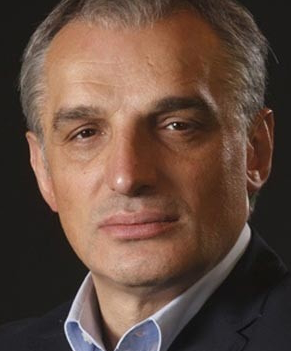
Protokolsüz koalisyonun sancıları…
Başkanlık sistemi - Cumhurbaşkanlığı Hükümet Sistemi- modelimiz de uygulaması da başarılı değil. Hatta, bütün ekonomik veriler başta olmak üzere kıyaslanabilir bütün alanlarda geri gidişi var. Dış politikadan eğitime, tarımdan üretime birçok sektörde ya geri gidiş yaşandı ya da dünyanın gerisinde kalındı. Somut kriterlere göre başkanlık sistemi başarısızdır. Bunu telafi edecek; sözgelimi iç barışın gelişmesi ya da siyasi kalitenin artması gibi sosyal branşlarda durum daha da kötüye gidiş sinyali vermektedir.
Son seçim; yani, 14/28 Mayıs da iddia edildiği gibi başkanlık modelini kalıcılaştırmamış, sorunların daha da derinleşmesinden görüleceği gibi aksine tartışmalı hale getirmiştir. Ekonomide rasyonel politikalara dönüş eğilimi olumlu olmakla birlikte, bilindiği gibi bu parlamenter sistemde daha başarılı uygulanmıştı. Kaldı ki rasyonel politikalara dönmek için en gerekli unsur olan kamuda tasarrufun yeterince yapılamaması hala büyük bir problemdir ve bu da başkanlık sisteminin iktidara sunduğu olumsuz bir imtiyazdır. İktidar bir nevi rasyonel yolla çıkış ararken, irrasyonel alışkanlıklarından da vazgeçememektedir çünkü eldeki sınırsız yetki buna izin vermektedir.
Yani, mesele sadece başkanlık sisteminin başarısızlığı değildir. Dahası vardır; protokolsüz koalisyon…
Hatırlanacağı üzere CHS’ne geçmek için yapılan referandum öncesinde en büyük iddia, artık koalisyonların biteceği üzerineydi. Türkiye koalisyonlardan çok çekmişti ve yeni yönetim sayesinde bir daha koalisyon olmayacaktı. Böylelikle de hızlı ve seri karar alınacak, kimse de Türkiye’nin önünde duramayacaktı. Koalisyon o kadar silinecekti ki kararları tek başına Cumhurbaşkanı aldığı için bakanlar kurulu bile ayağına dolanmayacaktı.
Gelin görün ki daha ilk seçimde, 2018’de Ak Parti ve MHP - ilaveten BBP- koalisyonu zarureti ortaya çıktı. Erdoğan, tek başına yüzde 50’yi aşamayacağı için Bahçeli’ye ihtiyaç duydu. O sayede de seçimi kazandı. Türkiye beş yıl boyunca, adı Cumhur İttifakı olan ama gerçekte AK parti-MHP koalisyonu formunda yürüyen bir iktidar tarafından Erdoğan eliyle yönetildi. İkinci seçimde 2023’te ise, koalisyonun biraz daha genişlemesi gerekti ve ortak sayısı daha da arttı. AK Parti ve MHP’ye, BBP ile birlikte YRP, DSP ve Hüda Par eklendi. Bir iki de partili (Vatan) / partisiz (Oğan) müttefik Erdoğan’ın yanında yer aldı. Bugün fiilen yine koalisyonun iki ortağı bulunuyor ama YRP hariç müttefikler hala iktidar fotoğrafının bir parçası durumundadır. Bu da bizi başkanlık sisteminden daha kötü bir model olan protokolsüz koalisyona götürüyor.
Son gelişmeler gösteriyor ki hükümette bakanlık düzeyinde aktif rol almasa bile MHP, iktidarın hiçbir şartta vazgeçilmez ortağı haline geliyor. Erdoğan-Özel normalleşme girişimine itirazda ve Sinan Ateş cinayetinin dava sürecinde görüldüğü gibi siyasi şartlar bu partiyi koalisyon içinde gün geçtikçe daha otoriter bir konuma yükseltiyor. Ne var ki bir yandan koalisyon yürüyor ama bir yandan arka plandaki stres de büyüyor. Problem, MHP’nin gücü ve güç kullanımı değildir. Problem ise de bu Ak Parti’nin problemidir. Toplumu ve seçmenin problemi ise iki parti arasında 17/25 restine kadar giden sembolik anlatımların gerçekte hangi sorunlara dayandığının bilinmemesidir. Ve elbette iki partinin aynı ittifakta/koalisyonda bulunma şartlarının nelere dayandığının… Buralar sır çünkü ortada bir koalisyon protokolü bulunmuyor.
Bırakın bir demokrasiyi, herhangi bir ortak iktidar modelinde bu arka planın toplumun bilgisi dışında olması düşünülemez. Böylesine önemli bir konu öfkeli sözlerle, hamaset ve sloganlarla geçiştirilemez. İnsanlar, yönetimde birlikte hareket eden partilerin hangi konularda ortaklaştığını ve mutabakatlarının hangi kırmızı çizgilere dayandığını bilmek hakkına sahiptir. Tabii, sembollere ve demeçlere yansıyan gerilim ve restleşmelerin sebebini de…
